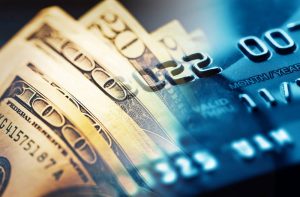
Property Investing 101 – Understanding Owned and Possessed
Property is one of those things that almost everyone thinks of when the topic of property is brought up. Almost everybody has some idea of what property is, even if they don’t know what it looks like or how it differs from other types of property. Property in the real world is what is assigned to or belongs to something, whether as part of something else or as an independent feature. In short, property is the transfer or exchange of possession from one person to another, with the implication that something is being transferred or exchanged for a particular reason, usually monetary or social.
Property in popular parlance is also sometimes defined as personal property or in legal parlance, as proprietary property. The reason for this is that property is something that is acquired by deed, be it proprietary land or any other type of property. So far as what is considered property in modern society, everything that people acquire and own comes under this broad heading.
The most common definition of property is a possession that lasts for a definite period of time. This possession may be exclusive or non-exclusive, but regardless of this, it is something that all people have. A possession that lasts for a long time is called ‘private property’. Private property can only be owned by people who are legally related to the owner or in other words, people who are the absolute owners of a specific property.
A period of exclusive possession is known as a tenancy. A tenancy is the right to rent or lease a property for a fixed period of time. It does not, however, include the right to buy. A mortgage on the property is a condition of the tenancy. Where there is a mortgage on the property, the landlord is entitled to collect the money owed from tenants until the loan is paid off. In most countries, a mortgage is a condition of the property itself.
Many people confuse ownership and possession with ownership and control. Property, by definition, is the right to own a certain property. But, it is also a responsibility to make sure that the property is kept in good condition. Having the property means having to ensure that it is in good condition.
There are also two distinctions that can be made between owning and possessing. The difference between these two things is important to understand when you are looking to invest in property. When you are talking about owning a property, you are talking about the legal right to live in that property. Possession, on the other hand, is when you occupy a property without the legal right to do so. With ownership, you own the property, you just have the responsibility of keeping the property in good condition.
Many people are confused by ownership and possession, and they often refer to the two as synonymous terms. However, this isn’t always the case. Ownership and possession are slightly different legally, and they should really only be used in reference to how you own a property, rather than talking about whether you have a right to use the property. Of course, if you do purchase a property, you will own it as long as you pay the mortgage repayments on time, you keep up the property repairs and you don’t damage it.
If you are interested in making an investment in property, you should familiarize yourself with the two legal concepts above. Knowing the difference between owning and possessing will help you determine which one to invest in, and it will help you enjoy your investment in property better. The legal rights that you have in any property you own are important and shouldn’t be overlooked. They are separate legal rights from ownership, and they are very valuable. Understanding them now will help you to ensure that you have the legal rights you need, and to help you enjoy your investment in property.

